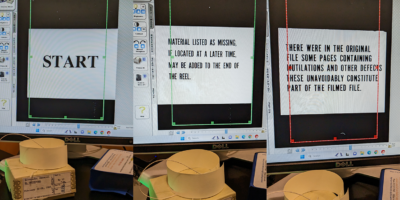By Anke Geertsma
Every semester I feel like I have to solve an impossible puzzle. And I’m not talking about the puzzle that is the CUNY academic calendar, where Tuesdays can be Fridays and Mondays Wednesdays. No, it’s only after I’ve tackled this challenge that the real struggle starts. This one strikes when I’ve written most of the syllabus (the course description, learning outcomes, plagiarism policies, etc) and find myself staring at a list of dates and a perfectly empty column that says “readings.”
I’ve always envied professors with complete and orderly course schedules. Professors who, so I thought, taught courses where nothing was left to chance. Of course they selected those texts, and of course assigned them in that order, and of course these were the relevant sub-topics requiring three weeks of class time each. These professors were somehow able to create a comforting impression of order and stability, right there on the first day of class: to send the message that, as long as we stick to the reading list, we will all be just fine. Professors like these, I felt certain, knew exactly what their students would ask and when the next hurricane would shut down the college for a week.
I’ve never felt quite so confident about my course schedules. Maybe it’s because I’ve mostly taught introductory survey courses that ask you to do the impossible: to cover a period spanning roughly two millennia or select readings from a field so immense it requires a lifetime (or at the minimum a Ph.D.) to grasp. Or maybe it’s because I don’t think you can simply create a schedule and stick to it. Of course you need a plan, and readings, and assignments, but what if your students don’t relate at all, or what if the world changes dramatically and you cannot (and should not) ignore what’s happening outside your classroom? What if you spend more time on a text than you thought because it resonates deeply with your class, or simply confuses them so much, or what if a discussion leads to another totally unforeseen one, for which you (or one of your students) have just the right text to also share with the class?
For me, a course schedule is not set in stone. Yes, it’s a road map, but plans change as you’re traveling. I no longer feel insecure about changing dates and readings, and I always leave space in my syllabus to improvise and adapt to my students’ needs. I invite suggestions from my students about readings and ask them to let me know if they want to spend (more) time working on a certain topic or improving a skill. I hardly ever change an assignment though. And I try to never change the assessment structure and grade breakdown. No matter how much I want to embrace ambiguity and flexibility in the classroom, I cannot escape the performance-driven educational system we’re a part of, not to mention my students’ dependency on merit-based financial aid.
Right now, I’m spending a bit more time on Antigone with my students than I usually do. I’m teaching a hybrid Great Works class at Baruch, and we’re finding that questions that Antigone raises, about rebellion, treason, tyranny and the rule of law, are worth discussing in depth and in relation to our current political situation. We will probably have to skip a text later on, but it will be worth that small adjustment. The conversations right now feel too relevant to rush.
Anke Geertsma is a TLC Fellow and a doctoral candidate in Comparative Literature.









1 Pingback